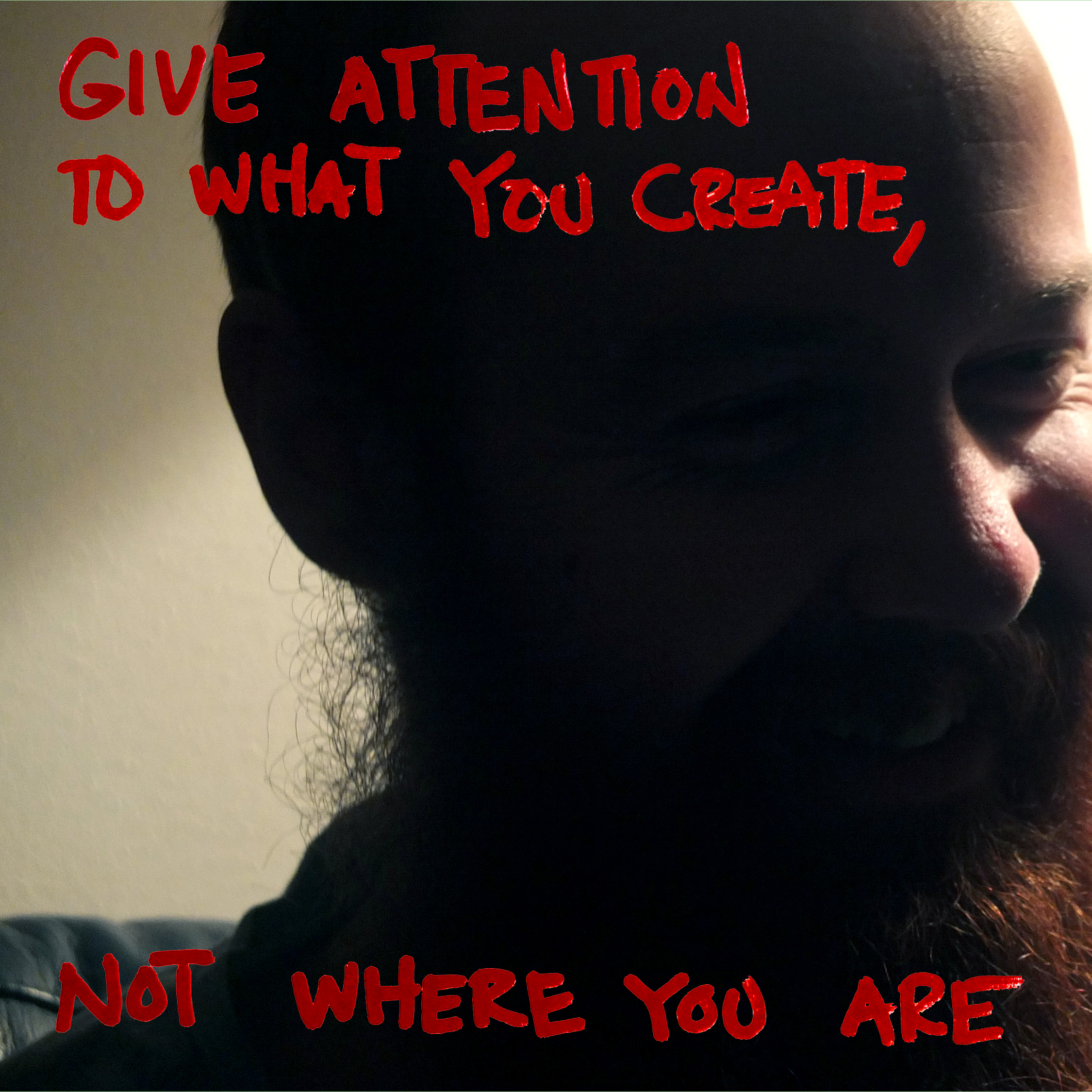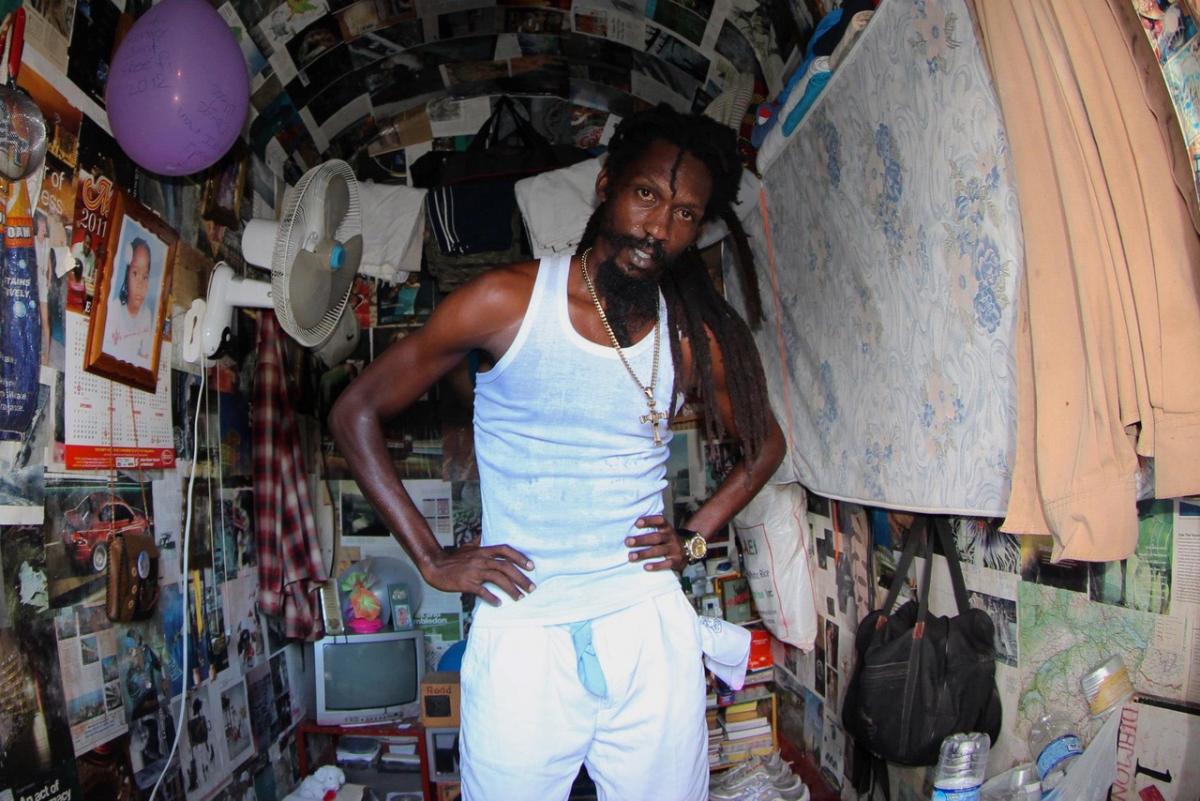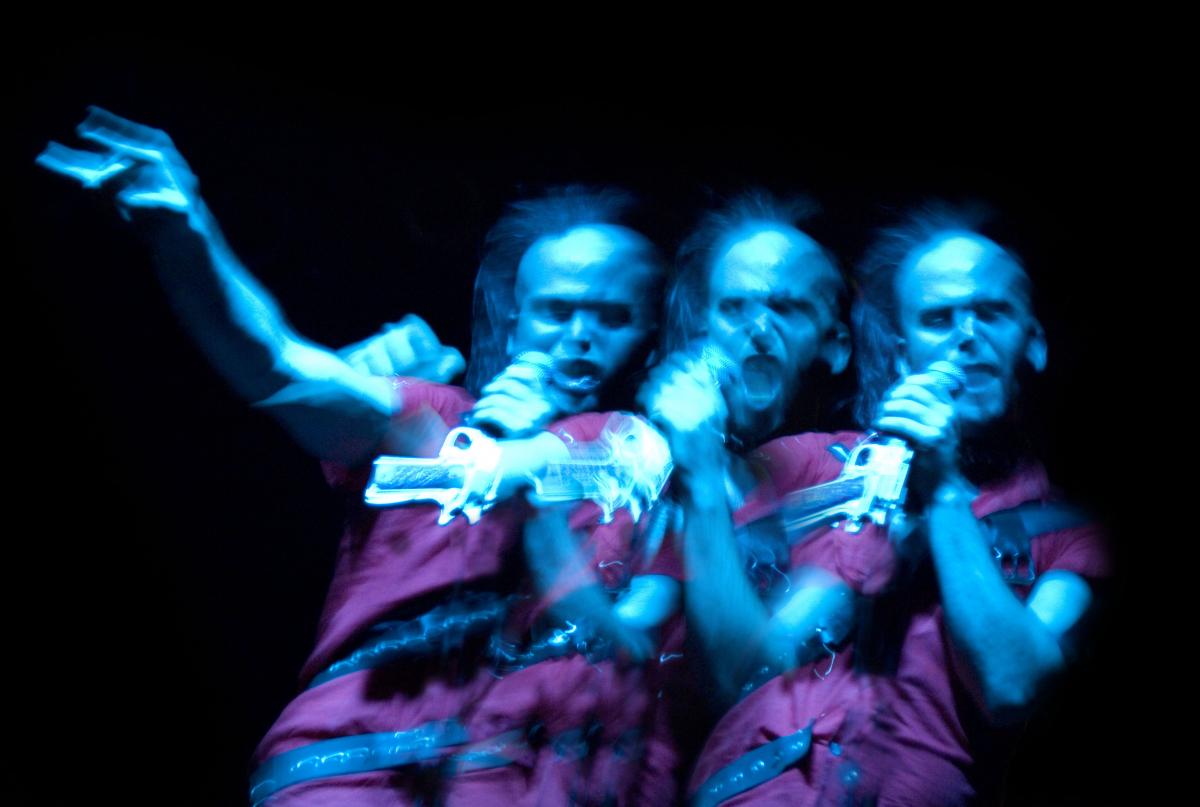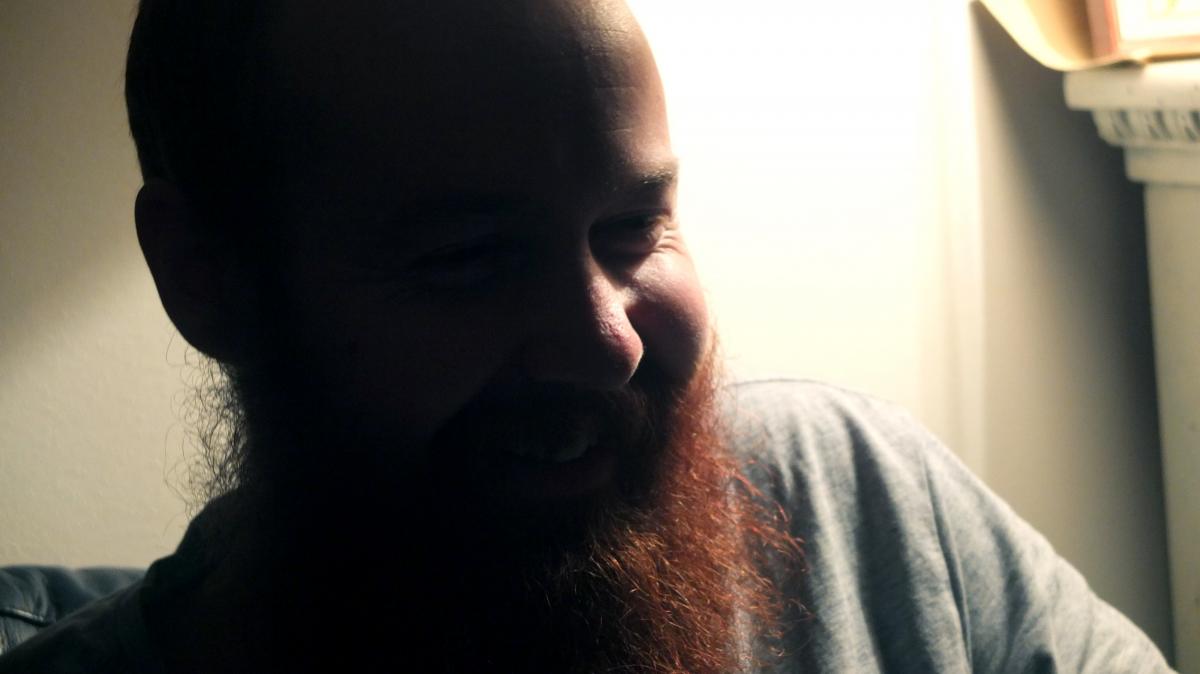
From Clubmusic to Permaculture
The electronic musician FIS combines somnambulant drum & bass rhythms and cinematic melodies with notions of a futurist naturalism. Martyn Pepperell talked to him about noise, permaculture and perfect harmony.
Over the last half decade, Berlin-based, New Zealand-born music producer and permaculturalist Oliver Perryman aka FIS has embarked on a journey from the edges of jungle and drum & bass to the beating heart of extreme cinematic composition. Along the way, he has released EP-based asymmetrical rhythm abstractions at labels like Samurai Horo, Exit Records and Tri Angle Records before letting himself sink into the ecstatic electronic noise of his debut album The Blue Quicksand Is Going Now.
On his debut, FIS reveled in the beauty of the natural world, and its potential as a catalyst for personal change and healing. A year later, he returns with From Patterns To Details, released by Subtext Recordings. Starting with the understanding of permaculture's potential to establish a state of alignment between man and nature, this album sees FIS expanding this idea into a form of futurist naturalism that embraces technology as life in a different state. From there, he uses atomised sonics white noise and gorgeous drones to dream of a perfect harmony that reaches into the ever-shifting extremities of infinity and back again.
[Martyn Pepperell]: As part of the promotion of From Patterns To Details, English poet Rick Holland shared a series of poems inspired by the album. What's the story here?
[FIS]: I saw some of Rick's poems and thought he seemed like the perfect guy to show me some aspects of the album I could never come to terms with myself. I thought it would be cool to have something different to offer, some kind of artistic response. Rick says something that has a deeper energetic subtext born from the way he arranges words. There is this silvery groundwater to his work and it felt like a great way to communicate what the album was about. Some people are going to be able to decipher the intent of From Patterns To Details by listening to it, but it's nice to involve another artist and find the in-between thing that doesn’t seem to care if a poet elucidates it or a musician, because that is the true space of the record. In September I interviewed Scratcha DVA. Something he said stuck with me. «Tunes have to be listened to at the right time, in the right space or surroundings». It makes you think about how much stuff is being lost because of the mediums we use, and how much stuff is being connected with because it's perfect for the internet. I think the success of a lot of music relates to its internet friendliness. I don't know whether that's intentional or not, but It think it might be more and more these days.
[MP]: When I interviewed you last year, you said, «I think my music has yet to find its appropriate setting to be performed live». Has that changed?
[FIS]: I feel like my music has found its way with people. I think on both accidental and intentional levels, everything I've said and done over the last few years has suggested its natural setting anyway. In terms of the shows promoters are asking me to play now, and what they understand me as being there to do, it seems that my music not only prescribes its own settings, but has found those right settings.
Environment Doesn't Matter
[MP]: Would it be fair to say the release of From Patterns to Details has been the most press you've ever done?
[FIS]: Yes. I just feel more comfortable now. In the past, doing interviews used to be such a thing for me. I would be fretting over what I wanted to say and trying to get it all perfect. That sort of thing is a sign your feet aren't firmly planted somewhere. I feel centered and connected within this project, so why not connect with people?
[MP]: How do you feel living and working as a creative in Germany differs from back home in New Zealand?
[FIS]: For comfort as an artist, New Zealand is like training at altitude. It's like an exercycle on the highest gear, and I'm not just talking economically. It's a matter of openness. I cannot tell you why, but right now New Zealand does not feel that open to artwork or artists.
When you talk about the arts in Berlin, there can be a sense that there are too many cooks in the kitchen. The ultimate point I would like to make though is this: environment doesn't matter that much to me. If you are going to call yourself an artist - and I don't personally bother with that word for myself, or get up in the morning and say, «I'm going to be an artist today», – your focus should be on the work anyway. Your attention should be given to something you are creating, not where you are.
Repetition Is a Part of Life
[MP]: You've framed your last album as about the relationship between nature, permaculture and technology. How did these ideas come together in your head?
[FIS]: It's been a reoccurring theme in my work in the past. This was just about having spent a bit longer doing this. I think I'm coming into clarity about what I'm doing, which is why it's been made explicit this time. The next record might be about the same shit, and the one after that, and the one after that. I don't really care.
On a very basic level, repetition is a part of being alive, and within music, plenty of well-known and lesser known figures have made careers out of repeating themselves. I think there can be a commercial interest in repetition, just as there can be a commercial interest in some sense for people to reinvent themselves. I feel like in the circles I'm in, it's very uncool to be sincere at the moment. It seems like things have boiled down to a few select festivals which are the only ones left with some money, and a sense of people around that who want to end up on those festival lineups. There is a very short yearly work cycle going on.
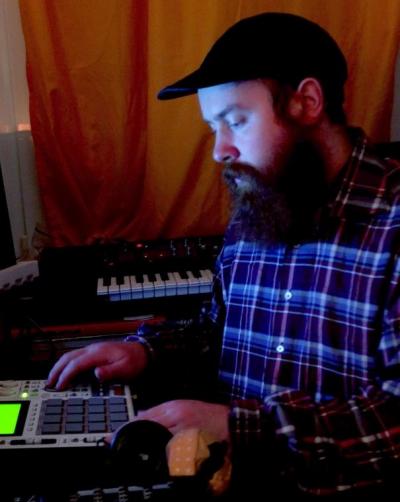
I think it's summed up well in «end of year lists» as the best place a record can end up. The list ties off the cycle, a new one opens and then it's time to try and get on it again with a new concept. Festivals do this as well now too. They have a festival theme each year. What I notice is once the theme has been cashed in on; there is no longer any personal interest in that topic. If it really mattered, you would still talk about it afterward.
I think with this record I wanted to put a bit of a stake in the ground personally because I do make music because I love it, and there are things in my life I do genuinely care about, permaculture design is one of those things. I just generally care about people being a bit better off personally, but also ecologically having a bit of a higher vibration. It was time to own that I guess.
Consistency Between Nature and Technology
[MP]: How have you drawn on nature and permaculture to develop your music?
[FIS]: In permaculture design, one of the major aspects is just letting life express itself. There was this famous Japanese farmer named Masanobu Fukuoka. He's dead now, but he basically perfected this to a point where he did nothing, He ran a profitable farm selling rice and barley. Fukuoka timed things to perfection by observing the cycles on the site.
All he did was throw the seeds he wanted for his next crop. When it was time to harvest one thing, he'd walk across, top it off, and then his next crop would just grow through the bottom. He never turned, tilled or plowed. He called that concept do-nothing farming. Ultimately there is nothing to do. So much work is born out of the idea that it is necessary, rather than the reality that there are already systems here to provide.
It doesn't end at do-nothing. From that understanding, you are qualified to think about what to do. You can make quite beautiful decisions about what to create, and create quite freely and safely on your own terms. Having understood it's not necessary, you choose to do so anyway, because of a genuine want to create something that is beautiful as a gift to the universe.
[MP]: What about the technology side of things?
[FIS]: I'm currently collaborating with a musician in New Zealand named Rob Throne. He plays Taonga pūoro, a set of traditional Māori instruments used as part of sacred rituals and storytelling. We were talking about whether we should electronically process recordings of Taonga pūoro. For the sake of this conversation, they represent natural elements, and computers represent technology. When Rob first heard the processing I'd done on some of the recordings, he thought some of the waiora or spirit might have been lost through the computer. Then, as we discussed it and listened further, he realised it was exploring a sonic aura in the recording that was previously unheard.
What I've found really interesting in terms of a technological meeting place with these recordings is how I'm hearing new stuff as I play around with them. I'm hearing even more spine-tingling identity, which is ultimately coming from the seed of the recording. To me, that is not a matter of inconsistency between nature and technology. It's one element meeting another element within the universe and having a conversation. I'm an organic entity, and the computer in front of me right now is technology, but the genealogy of the matter in this computer is just as old as the matter in me. Ultimately, in time these distinctions collapse, because everything comes from the source originally anyway.
What we are talking about across all of these domains is an all encompassing surrender. Surrender; opening up, it's the same thing. I still really love nature and organic life, but I've had to let go of the sense that it is more, that somehow I know what is or isn't true to Mother Earth. It's not really my place to have an opinion here.
Biography
Published on December 06, 2016
Last updated on April 22, 2022
Topics
From instruments made of plastic waste of the ocean to questions about a futurist naturalism which embraces technology for aesthetic emancipation.
How does the artits’ relationship to the gear affect music? How to make the climate change audible?
Snap
